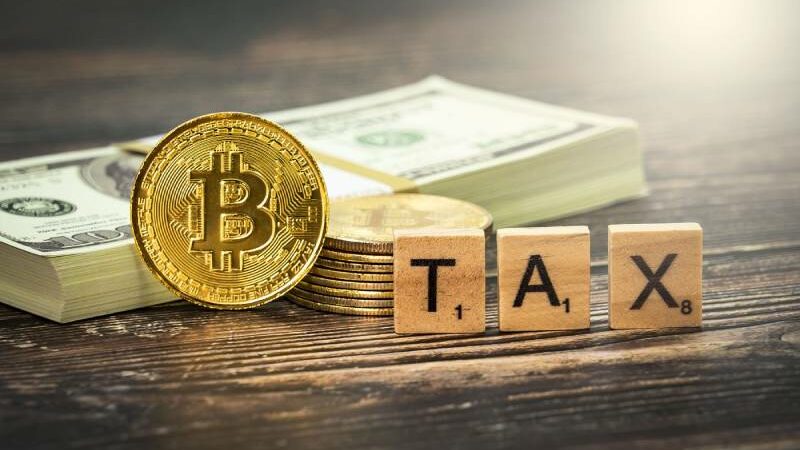Even though tax season is behind us, the reality is that the crypto tax debate will never end. Since most cryptocurrency tax concerns focus on upcoming changes to the IRS code, particularly compliance with 6045 and 6050I, it is easy to overlook the brand new tax forms that the IRS has recently released. Despite the fact that this document and related information was released on a later date than could potentially help him plan during the 2023 tax filing season, investors of all sizes have no idea what this form means. you need to be aware of it. Additionally, the creation and distribution of this document provides further evidence that the IRS is increasingly prioritizing tax reporting and compliance where such evidence is required.
It is important to note that the Form 1099-DA in circulation is a draft version of the document, but the fact that the impact of this form is far-reaching and impacts nearly every aspect of the crypto asset landscape is No change. Additionally, while the new version of Form 1099 will not change a company’s tax liability, the reporting details and depth of information will be broader.
Let’s take a look at some of the key questions investors, accountants, and entrepreneurs looking to expand their use of cryptocurrencies should keep in mind.
After some controversy over the definition of a broker, the IRS appears to have agreed on a broad definition of a digital asset broker. The proposed regulations provide additional details regarding which entities should be considered brokers, with a focus on entities that have the means to know the identity of parties involved in cryptocurrency transactions. Such efforts have been the source of significant industry opposition in recent years, but the IRS appears unlikely to change these policies, according to the draft regulations.
Currently, entities such as centralized exchanges, decentralized exchanges, wallet providers that enable traders and money transfers, and Bitcoin ATMs fall under the digital asset broker classification. In particular, miners and node operators who perform blockchain maintenance, as well as software developers (including smart contracts) who do not take the time to update their code, are not considered brokers. While it is welcome news that software developers and others involved in the edge are not subject to the new 1099-DA requirements, the inclusion of decentralized operators alongside centralized operators comes with its own challenges.
What is Reported (and When)
On the surface, the 1099-DA does not see much difference between the data currently reported on the 1099-B and this new format. This data includes the date of acquisition of crypto assets, the cost basis of these products, the date and time of each transaction, sales revenue and total revenue of all transactions. Reporting this information requires different digital asset brokers to communicate and exchange information each time an asset is transferred. In cryptocurrency trading, this becomes complicated when complete records and data are not shared with the trading partner exchange.
For example, when a trader transfers tokens from a decentralized exchange like UniswapUniswap -3.9% to a centralized exchange like Coinbase, it is relatively likely that some information (such as cost basis) will be missing. It will be expensive. Especially since DEX, by its very nature, does not have a centralized control or communication framework, it is extremely difficult to resolve such issues when they occur. This doesn’t even take into account the fact that investors can keep their tokens in cold storage. Since these are not connected to hot wallets or exchanges, it is unlikely that their holding data will be collected.
These reporting and compliance requirements will be further complicated by upcoming changes related to IRS Section 6045, particularly the requirement for investors and exchanges to track and report individual entities before each transaction. Simply put, between the reporting requirements mandated by IRS Section 6045 and the 1099-DA changes, this prospect raises tax and compliance concerns for sophisticated or active investors in the industry. bring. As of this writing, these reporting requirements apply to valid transactions. This will occur after January 1, 2025, so it will take time to prepare.
How to Interact with Clients
The implications of this draft 1099-DA form are numerous, but for CPAs and tax professionals who want to best advise their clients on how to handle these reporting requirements, some concerns are worth focusing on. There are a few things. First, are the customers in question aware of the status of wallets, exchanges, and other protocols used for crypto trading activities throughout the year? There is a lot of discussion and debate, especially about which companies to consider as brokers. This is an important first step. Second, does the taxpayer have access to (or currently use) cryptocurrency tax software to reconcile cryptocurrency transactions and activities with other accounting software? If the answer is no, then A solution needs to be implemented. If so, I have additional follow-up questions. Finally, the taxpayer in question must have a process, or at least a plan, to deal with the reality that even if the majority of virtual currency transactions and taxable events are reconciled, there will be discrepancies that will need to be manually resolved. Is it standing?
No matter the complexity, size, or specific customer, there are questions and concerns that need to be addressed. This gives crypto CPAs new opportunities to work as business advisors in this rapidly growing field.
- How to Get Free Raising Cane’s on National Chicken Finger Day 2024 - July 27, 2024
- 2024 Paris Olympics: How to Watch Tennis and Full Events Schedule - July 27, 2024
- Top 5 Most Respected Countries in Asia in 2024 - July 27, 2024





